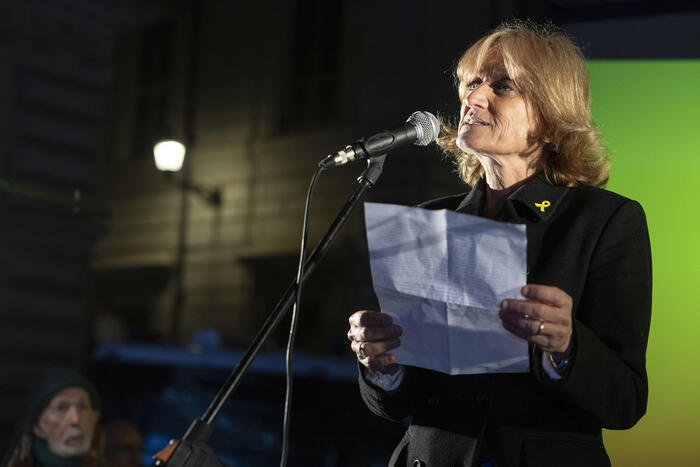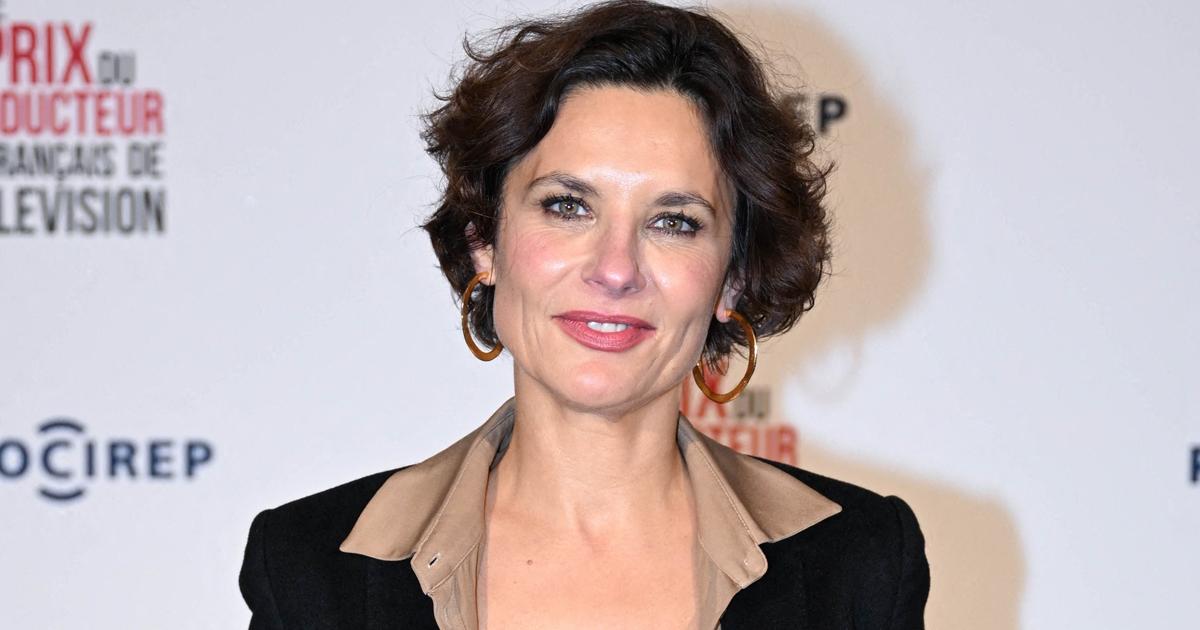In the previous issue, “taz” co-editor-in-chief Barbara Junge called the early SPIEGEL “a sometimes hard-to-bear men's magazine”. How are women and men discussed in SPIEGEL itself? Two colleagues are now talking about this in a typical place: the hotel's snack bar. SPIEGEL has around 500 editors, and if only three of them are talking, that can't be representative. But the conversation shows the perspectives that come together in such a house, and also how the self-image of journalism has changed: away from the omniscient SPIEGEL, who speaks with one voice, towards more pluralism. Culture editor Tobias Becker, 44, talks to Susanne Beyer, 52, author in the capital city office, who was the first woman in the editor-in-chief of the magazine,and with Simone Salden, 43, deputy head of the Germany / Panorama department. Salden initiated a #MeToo investigation at SPIEGEL in 2017.
Tobias:
Simone, Susanne, we're talking about the history of women in SPIEGEL.
What gives me the honor of having a say?
Simone:
You are our quota man.
And that's meant as a compliment.
Your part is as important as ours because otherwise there is no perspective.
Tobias:
I hesitated to say yes.
I don't just want to be the cue.
And certainly not the agent provocateur or the devil's lawyer.
Susanne:
Why this shyness?
There are few men in the house who deal with gender issues as regularly as you do. It concerns us all.
Tobias:
Many women saw it differently for a long time, both in the big debate out in the country and here in the house: They expressed the wish that men should first be quiet and listen.
Susanne:
These women probably feared that some men might not believe what they were reporting under the hashtag #MeToo.
I understand the concern that men held back as a result.
But if there are different opinions in the world, then they have an effect anyway, which is why a respectful discussion is always better than silence.
Tobias:
But what does all of this care for the reader?
Simone:
We want to offer a glimpse into the workshop: What moves us in the house, what moves us during research?
Susanne:
SPIEGEL is a medium-sized company like there are many.
In this respect, it is also a mirror of society.
Historical researchers would find that we were late in some ways and early in others.
We had an equal opportunities working group back in 2000 and a pamphlet for the quota as a cover story in 2011.
And the ProQuote initiative was also largely driven by SPIEGEL colleagues.
From other houses it was said: "Wow, you dare!"
Tobias:
You came to SPIEGEL in 1996, Susanne.
How did you feel about dealing with all your male colleagues?
Susanne:
The times were different. Largely without internet, but with pneumatic tube. And it seemed to me that SPIEGEL was very much shaped by 1968, the sexual revolution that it also promoted in journalism. In any case, some men back then constantly rated women's bodies: buttocks, breasts, everything. There were only a few who did that, but they were pushy. And powerful. They could be nice and smart and funny at the same time - I think that contributed to the fact that there was too little contradiction. I can also imagine that those who overheard such sayings ignored them in order not to aggravate the embarrassment. I myself have often pretended not to listen. Regret, however, is never too late. A colleague told me the other day that he was annoyed that he did not object more clearly at the time.
Tobias
: In the times you describe, SPIEGEL founder Rudolf Augstein was still alive.
He was often described as a boss who invited people to his private home for interviews and then wore a bathrobe.
Did you experience this Augstein too?
Susanne Beyer: "Augstein was a complex figure"
Photo:
Johannes Arlt / DER SPIEGEL
Susanne:
No, but I received a phone call soon after I joined the company asking if I would like to read to him.
Augstein no longer saw well.
I wasn't counting on sexual intentions, zero.
I knew, however, that I wouldn't be able to do that because journalists were quickly assumed to have achieved their success through relationships.
I did not want.
Tobias:
Contrary to what is usually reported, Augstein also welcomed men in bath robes.
A disrespect.
Simone:
A gesture of power.
Susanne:
Augstein was a complex figure, it's important to be clear about that.
Not to put anything into perspective, but to see things as they are.
He could think big that today's self-confident SPIEGEL would not exist without him.
But on your correct note, Tobias: Patriarchal structures hurt men too.
I found colleagues here who told how, as young editors, they sat down by the canal down at the house and cried.
Where there is power, there is often an abuse of power.
Tobias:
It wasn't long ago that SPIEGEL advertised itself with the following slogan: "The conference that makes politicians tremble." I remember jokes in the house: "If we're honest, we tremble too." This enormous hierarchy !
Simone:
The understanding of leadership is different today.
The younger generation would be gone if they were still treated like that.
Tobias:
Simone, you came into the house in 2006, hired by a boss.
Simone:
I came from the »FAZ«, which is also dominated by men, and that was an important aspect for me. The head of department told me that she was explicitly looking for a young woman with guts. I really wanted to work with her. For my interview in the chief editor, she gave me the sentence: "No matter what the gentlemen are laughing about, laugh too." These gentlemen then hardly spoke to me, but mainly about me. At the end the words came up: “Well, let's hire the young woman then. If it doesn't work, we'll kick her out again. ”Many male colleagues have been hired with similar words. It just wasn't clear to me at the time. When I started, the head of department had been removed. That was a belly landing for me.
Susanne:
The first department heads were often only briefly in this position.
Women were irritating to SPIEGEL.
Simone:
Still, for me there were quite a few female role models in the house.
Confident women who gave their opinion in the conferences.
And it helped that my topics were the so-called hard topics, a lot of state politics, red light, blue light.
Tobias:
The supposedly male issues.
more on the subject
#metoo: The Mockridge files by Ann-Katrin Müller and Laura Backes
Insights into a toxic relationship with a tragic end: Why did Kasia Lenhardt want to die? By Nora Gantenbrink, Isabell Hülsen, Antje Windmann and Agnieszka Debska (translations)
Sexual violence at the White Ring in Lübeck?: "A whole city kept its mouth shut" By Rafael Buschmann, Jürgen Dahlkamp, Gunther Latsch and Jörg Schmitt
Simone:
That's the cliché, yes.
I was a correspondent in Frankfurt am Main and Stuttgart.
Whenever I was visiting the Hamburg headquarters, I heard comments like: "Better not wear a skirt or something so bright, especially not if you are going to be a department head."
Tobias:
Was there any coaching for women?
Simone:
Yes, and quite a few colleagues made fun of it.
I took part in a seminar like this, and I'll never forget the tips: wear a trouser suit!
Talk about football!
Sit wide!
And: always address number one directly in the room!
Susanne:
It was about making women more masculine.
Not to empower them as women.
Simone:
It was an understandable approach to explain the rules of the game to women so that at some point they could even reach a position in order to change it.
And it worked flawlessly with many silverbacks.
Tobias:
Let's talk about children: In the year in which you started, Simone, Ursula von der Leyen, as Family Minister, enforced the parental allowance.
Simone:
I still saw a department head not speak a word to colleagues for months after they had told him that they were pregnant.
That changed through the father months. Every boss now knew: Regardless of whether I employ a young woman or a young man - the risk that they will be absent for a certain period of time is similarly high.
That prepared the ground for the careers of women.
In my case, the expansion of childcare also contributed to the fact that I was able to better think family and job together.
Tobias:
When I told my department heads, at that time two men, that I wanted to take parental leave but didn't know how long, five or six months, they said: "A modern man takes at least six months."
Susanne:
Family policy is so important!
Tobias Becker: "I share the goal of having as diverse an editorial team as possible"
Photo:
Johannes Arlt / DER SPIEGEL
Tobias:
In 2013, one year after the founding of ProQuote, a SPIEGEL text sparked discussion, the title: »Die Scheinriesinnen«.
The author criticized the fact that the journalists from ProQuote knew how to stage self-interest as a social relevance.
I share the goal of having as diverse an editorial team as possible.
But wasn't the author right anyway?
Simone:
I see it differently.
If you want to depict and understand society, you need a diverse team.
This is original journalistic.
Susanne:
I'm a ProQuote member, but we journalists who see themselves as feminists have to remain self-critical.
We are primarily journalists, not activists.
Tobias:
Susanne, you were first promoted to deputy head of department and then from there to editor-in-chief in 2015.
Did you feel like a quota woman?
Susanne:
Yes, and I had no problem with that because we had politically demanded the quota.
Klaus Brinkbäumer, whose deputy I was, wanted to appoint one or two women to the chief editor, but kept telling me: I wanted someone like you, even if you had been a man.
At some point I believed it.
Tobias:
Did you hesitate to accept the offer?
Susanne:
I couldn't demand equality and then say I won't do it.
But I knew what the price would be.
As the first woman in this position, I couldn't be the one who goes home early in the evening.
That would have harmed other women.
more on the subject
Sex, lies, abuse of power: the Springer affair
Ex- »Bild« editor-in-chief: Why Julian Reichelt had to go
Love relationships on the job: Springer changes code of conduct for managers
#MeToo after the Reichelt case: The sex power problem - and how we solve itA debate by Mithu Sanyal
Simone:
Barbara Hans was already deputy editor-in-chief at SPIEGEL ONLINE at the time.
Why was it such a step anyway?
Susanne:
That was at the beginning of 2015, a few years before the magazine and online editors were merged.
At that time, the magazine had a history of almost 70 years.
The department heads I was dealing with didn't know that, a woman above herself in the hierarchy.
I warned: is the house ready yet?
Am I the right guy first?
Tobias:
You asked yourself whether the first woman in the position shouldn't be one who leads in a clichéd masculine way?
Susanne:
Exactly.
But I am what I am, I said that right away.
If you pretend, it takes unnecessary strength.
Tobias:
Did you join the editorial team with the aim of advancing the women's cause?
Susanne:
Of course, but there were four of us, three men, one woman, we all wanted that. It was also about checking the topics that came from the departments to see whether women are prominent.
Simone:
I was in charge of the internal communication for a while, I wanted to make the work of women more visible in it.
I had to partly persuade the colleagues to report on their research.
Tobias:
Did you hesitate when you were offered a management position, Simone?
Simone:
No.
A lot had changed in the house, thanks in part to SPIEGEL ONLINE.
There it was more natural to fill management positions on an equal footing.
Tobias:
Because the SPIEGEL ONLINE team was younger?
Simone:
Also.
But the site started out as a start-up, with flat hierarchies and no stuck traditions.
For us as a merged editorial team, this means that the former employees of the magazine and the website have different stories in their luggage.
The view of the #MeToo debate is also different.
Maybe that's because of the direct line we have to younger readers in the digital world.
Tobias:
The woman as boss - is that still a taboo today?
Simone:
It is not an issue that she is the boss.
But how she acts as a boss.
Many decisions are read not as a boss's decision, but as a woman's.
Partly rightly, because of course, as the boss, I want to do some things differently.
Susanne:
I honestly look a little more strictly at female bosses.
This is unfair, but the feminist reflection that women have behind them must lead to something.
It can't just be about making a career.
It is also about ethical demands on leadership.
Simone:
The competitive thinking among women is often very pronounced.
This is because, for a long time, at most one woman could make it to a prominent position.
If it was occupied, there was no room for another woman.
We have to overcome this thinking.
Tobias:
Would you resent a man's egoism and elbows less because you expect them to come from him anyway?
Simone Salden: »The competitive thinking among women is often very pronounced«
Photo:
Johannes Arlt / DER SPIEGEL
Susanne:
We should put egoisms and elbows behind us, at least as a primary principle.
Anyone who is one of the first women to act in a prominent position should try to behave particularly decently, precisely because their behavior is perceived as exemplary.
Simone:
Women strive for influence and power just as much as men.
I don't think it's a good thing that people take women more badly than men.
Susanne:
In the long run you're right.
My aim is to apply higher ethical standards to everyone, including men.
Tobias:
Susanne, in 2018 you wrote a text on the #MeToo debate, the title: »We have to mention Augstein«.
Susanne:
The headline is a quote from a colleague.
We were discussing how to report on #MeToo when this colleague recalled the bathrobe stories and said, "Wait a minute, we have to mention Augstein."
Simone:
The debate didn't just take place somewhere in Hollywood, it was something we all had to deal with.
Realizing that so quickly was progressive.
And for me that's typical SPIEGEL: Say what is.
What was.
Tobias:
Your text is not an accusation, it has a tentative, doubtful tone and leaves room for ambivalences.
I would like to see more #MeToo reports in this style.
Susanne:
I always try to question myself and my view of topics.
Maybe because I was so doubted at first as a woman in this job.
Now I think that's a modern kind of journalism.
In the Adenauer era, when a lot was kept secret in society, SPIEGEL was about taking sharp action against old Nazis.
In today's noisy times, nuances seem important to me.
Tobias:
You helped initiate the #MeToo investigation at SPIEGEL in 2017, Simone.
Simone
: A lot of colleagues were involved.
It was seething.
Because it wasn't just about stories long ago.
Younger women had been injured too, and we had the feeling that a lot of colleagues didn't want to hear that.
Then there was a text in our paper in which a colleague complained that the term sexism was used in an inflationary way and “offers women a convenient alibi when their careers don't go all the way up because they don't have enough talent or others have more bite.
In a pinch, social circumstances are always to blame.
Or the old white man. ”The frustration was great.
Tobias:
How did you deal with it?
Simone:
One evening in Stockholm actresses had read reports of sexual assault and everyday sexism in front of an audience in front of an audience.
We took this as an example and set up a kind of mailbox and had situations like this from the SPIEGEL story portrayed to us anonymously.
Of course, that was just a sample.
But we then read them to the editor-in-chief and the publishing house management, briefly, factually.
We wanted these voices to be heard at least once.
The situation was oppressive for all of us.
Tobias:
Were there justiciable cases?
Simone:
To our knowledge not, but the whole range of everyday sexism and abuse of power: grabbing at a party, sexist sayings in the elevator.
The publisher later commissioned a quantitative survey, and we now have a corresponding company agreement.
Tobias:
Let's talk about another aspect.
The feminist Svenja Flaßpöhler, for example, has criticized the #MeToo movement for perpetuating a patriarchal gender image: women as a good, defenseless victim.
Some feminists of the Alice Schwarzer generation were alienated by the debate.
Anyone who has tried for decades to show strength and to empower themselves as a woman is amazed that women now emphasize their being a victim.
Simone:
But it takes a lot of courage and strength to report sexual harassment or rape in public in order to break the existing structures.
In addition, it will always be like this: One person feels attacked by a saying that is not a problem for someone else.
We have to allow a certain plurality in the #MeToo debate.
Susanne:
Talking about individuals is one thing.
But we also have to talk about power structures and dependencies.
Tobias:
I see it the same way you do.
Nevertheless, I take a critical view of the #MeToo reporting in many media, and sometimes our own too.
And I emphasize that it is no different for some women in the house.
Simone:
As with all grievances, we have a clear mandate to look closely and uncover them in #MeToo cases.
That is the core business of SPIEGEL.
more on the subject
Olympic champion Kristina Vogel on the consequences of her serious accident: "Sorry. I'm not actually crying" By Antje Windmann
Victims of sexual abuse and violence in sport: "I completely underestimated what overwhelmed me afterwards" By Ann-Katrin Müller and Antje Windmann
Players raise serious allegations against the rugby association: »I'm scared of something like that« By Brenda Weinel and Antje Windmann
Allegations of abuse in gymnastics: 40 stitches in the neck by Antje Windmann
German gymnasts report on the psychological violence of their trainer: The »goldsmith« and her two faces by Antje Windmann
Tobias:
The question is not whether we should report on #MeToo cases.
The question is, with which gesture, how confident or how doubtful.
Simone:
We discuss a lot about our #MeToo research.
Overall, we are very critical of one another.
I see that as a strength, but also as a problem.
Too much self-mortification can be demotivating.
I do not want colleagues to conclude for themselves that they no longer do such research.
Susanne:
I, too, have always been in favor of investigative research into #MeToo cases.
The colleagues who do this deserve respect and support.
The reason we struggle so hard is that suspicion alone can destroy an existence.
Simone:
The same journalistic standards apply to #MeToo research as to all other research.
And I don't know a better corrective than our documentation and our legal department.
Susanne:
And yet we should develop mechanisms to give different perspectives more space.
In gender debates, it is a problem when one side gets involved and the other is silent.
Simone:
More men would certainly do the research good.
At the moment, women are still dominating.
In addition, various teams are generally more successful.
The picture is rarely black and white, it gets grayer the closer you look.









